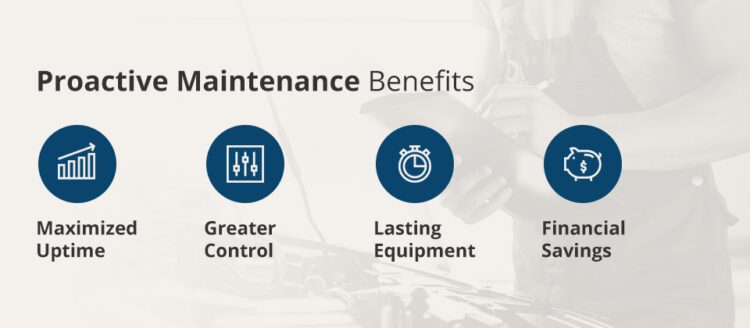Managing rental property can be the quick path to generating wealth, especially if you know how to time the market and are willing to put in plenty of hard work. Piece by piece, you’ll build your investment portfolio with new property purchases and attract renters to rent those properties.
Assuming each new property in your portfolio adds new cash flow, it should be only a matter of time before your holdings are large enough to provide a steady stream of income that covers all your needs.
The unfortunate downside is that managing property can require a lot of time and effort, and results in stress that may prevent you from pursuing a full-time career. However, there are strategies that will empower you to work smarter, rather than harder, in this realm.
In other words, you could continue to reap great results without having to spend more hours on your holdings. Here’s how to do that.
Page Contents
Choose the Right Properties

Source: goalproperties.com
Everything starts with selecting appropriate properties to acquire. Searching for a prospect can be tiring, especially in a competitive market that’s been driving up the price of every property in sight.
If you’re eager to get started with a property management strategy, or you happen to have extra capital burning a hole in your pocket, you might be quick to grab the first workable offering you encounter. On the surface, this might appear to be an acceptable way to save time and start generating income immediately.
But to be more realistic, it’s better to spend a little more time up front to make sure you purchase a property that will be a good fit for your portfolio. The right one will require lower maintenance, demand less of your time in the future, and will be much more likely to generate a substantial profit on its own.
In sum, the one you want will require less in the way of adjustments or improvements later on.
Below are several of the most critical variables to examine when considering a purchase:
- Purchase price and income potential. Study the purchase price and the income potential of the property. Just because the property is attractive to renters doesn’t mean it’s apt to be a good investment for you. You have to make sure you get a good deal and that the property will generate reliable and positive cash flow every month.
- Location and trajectory. You should also think about the location of the property and the apparent trajectory of the neighborhood. Over the past few years, has there been an influx of people moving into this area? Are new businesses and new job opportunities opening up for them? Do you perceive forces that will drive more people to come here, and do the new arrivals seem excited to settle? Or have you noticed opposing trends, such as climbing crime rates, fewer job openings, and other issues? Focus your decision making on the long term.
- Maintenance needs. Take a look at the probable maintenance needs of the property. Older properties and homes in damaged or deteriorating condition will demand more time and money from you. Newer homes and those that have remained in better condition will require very little in comparison.
Work With a Property Management Firm

Source: bullpropertymanagement.com
According to Green Residential, a property management firm can help you in many ways. It will save you time and effort while providing the services you need.
To begin with, most property managers are more than willing to help you search for properties to add to your portfolio. They’ll chat about your priorities and goals, as well as your projected budget, and they can provide recommendations for properties in the area that might be a good fit for your needs. They can also connect you with real estate agents, lawyers, and other professionals who can assist with the purchase.
From there, property management firms take care of most of the work you would otherwise have to do. They’ll screen your tenants for you, take care of maintenance and repair requests, collect rent and follow up on late payments, and even manage evictions if you ever have to do them.
For a small portion of the rent you’d be collecting each month, your property will be managed almost completely hands-free, from your standpoint.
Invest in Tenant Screening
If you don’t work with a property management company, you’ll have to handle tenant screening on your own. It’s tempting to get someone into the premises as soon as possible, but you’d be smarter to take your time and find the perfect candidate. You’ll be looking for someone with a reasonable credit score, verifiable income, and a good past history with rentals.
Be Proactive With Maintenance

Source: gesrepair.com
As much as possible, be proactive about performing maintenance. Don’t wait for something to break down before you take action. Small routine tasks, like changing furnace filters and cleaning out the gutters, could save you a lot of time and money later on.
Manage Disputes Fairly
It pays to keep tenants happy, especially if they have a history of reliably paying their rent. It’s in your best interest to manage disputes as fairly as possible. If and when your tenants complain, do your best to be accommodating and find a workable solution that serves the interests of both sides.
Build a Team of Reliable Experts
Finally, build a team of reliable experts. You couldn’t possibly be an expert in everything, so keep a rolodex of contacts who are ready and willing to provide advice and assistance.
Few real estate investors are successful right out of the gate. More often, it takes years of experience, research, and trial and error before you find a system that works reliably for you.
In the meantime, there’s no getting around the “hard work” aspect; no matter what you do, you’re going to have to invest some time and effort into property management. But armed with the aforementioned strategies, you should be able to reduce the number of hours you spend on your holdings and maximize your real income.





